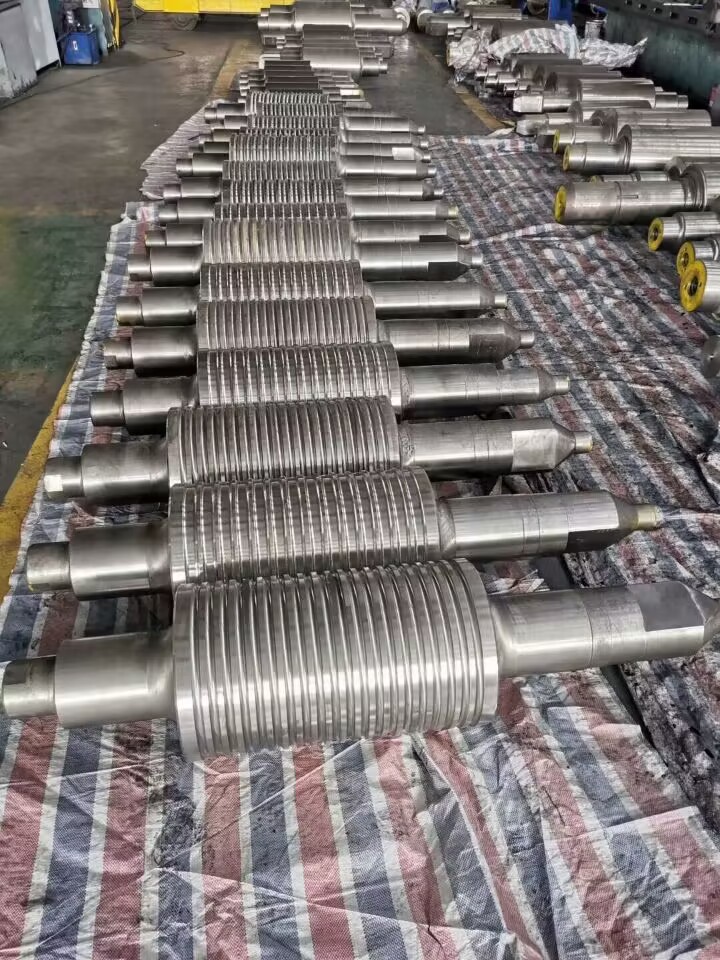Rollers play a vital role in the metal processing industry, especially during metal forming and thinning processes. Different types of rollers are used depending on the specific application and desired results. In this blog, we’ll explore the features and benefits of four popular options: tungsten carbide rolls, semi-steel rolls, steel rolls, and high-chromium iron rolls.
1. Tungsten carbide roller:
Tungsten carbide rollers are known for their exceptional strength and durability. They are often used in roughing applications due to their excellent wear resistance and high temperature resistance. Tungsten carbide rolls are particularly suitable for processing stainless steel, high-speed wire rod and other demanding alloys. These rolls offer longer service life and less downtime and are worth considering for heavy-duty mill operations.
2. Semi-steel rolls:
Semi-steel rolls are widely used in various rolling mill applications. Their metallurgical composition consists of a shell made of hardened steel and a core made of ductile iron. This combination provides good wear resistance and is cost-effective compared to solid steel rollers. Semi-steel rolls are suitable for various rolling processes and can be used for a variety of materials.
3. Steel rolls:
Steel rollers are widely used because of their versatility and adaptability. They come in a variety of grades and compositions, each offering unique properties such as abrasion resistance, thermal shock resistance and impact resistance. Steel rollers are an excellent choice when flexibility is required to accommodate different materials and rolling conditions. From hot rolling to cold rolling processes, steel rolls can meet a wide range of applications.
4. High chromium iron roll:
High chromium iron rolls are known for their excellent wear resistance and hardness. They are suitable for rolling mills handling materials such as steel, aluminum and copper. These rolls can withstand the harsh forces and extreme temperatures encountered during the rolling process. High chromium iron rollers are known for their extended service life and efficiency.
in conclusion:
Mill roll selection depends on a variety of factors, such as the material being rolled, the desired results, and your specific operating requirements. Tungsten carbide rolls are ideal for roughing applications, while semi-steel rolls provide a cost-effective solution for a variety of rolling processes. Steel rolls offer flexibility for different materials and rolling conditions, and high-chromium iron rolls are known for their excellent wear resistance. By understanding the features and benefits of each type, you can make informed decisions to optimize your rolling mill’s performance.
Post time: Nov-20-2023
